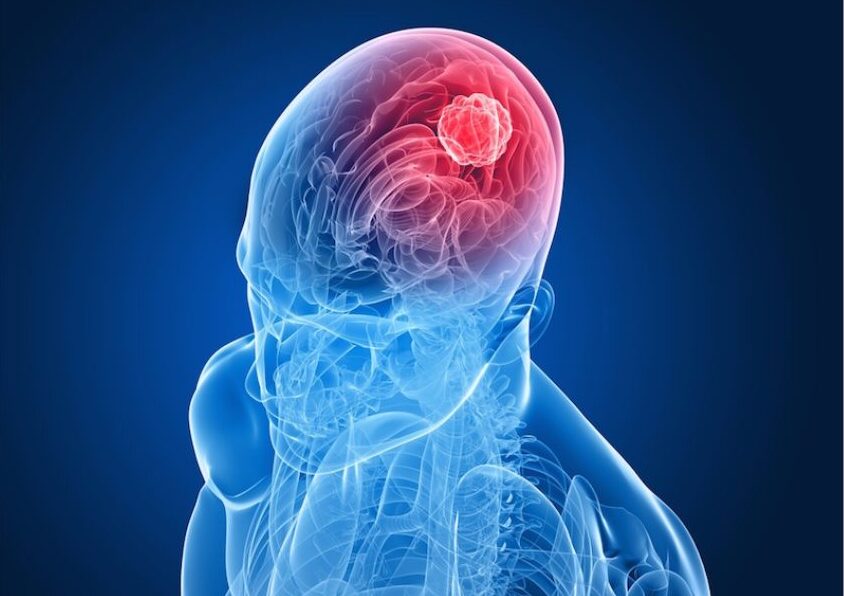BLOG
Brain Cancer: Causes, Symptoms & Treatment

Brain cancer is a formidable medical condition characterized by the growth of abnormal cells within the brain tissue or the central spinal cord. This serious illness affects thousands of individuals worldwide and poses significant challenges due to its critical location and complex symptoms. Understanding the causes, recognizing the symptoms, and exploring the treatment options are crucial for early detection and effective management of brain cancer.
What Causes Brain Cancer?
The exact causes of brain cancer remain largely unknown; however, a combination of genetic and environmental factors is believed to play a role. Some common risk factors include:
- Genetic predisposition: Family history of brain tumors can increase the risk, suggesting a genetic component to some brain cancers.
- Age: Although brain tumors can occur at any age, the likelihood increases with age.
- Radiation exposure: Exposure to ionizing radiation, such as that used in radiation therapy for other cancers, has been linked to an increased risk of developing brain tumors.
- Chemical exposure: Certain industrial chemicals have been associated with a higher risk of brain cancer.
- Previous cancer history: Patients who have had other types of cancer may have an increased risk of developing a brain tumor later in life.
Symptoms of Brain Cancer
The symptoms of brain cancer vary widely and depend on the tumor’s size, location, and rate of growth. Common symptoms include:
- Headaches: Frequent, persistent headaches that worsen in the morning or change intensity with position can be a warning sign.
- Seizures: Unexplained seizures are often one of the first signs of a brain tumor.
- Vision or hearing problems: Blurred vision, double vision, or loss of peripheral vision can occur. Some patients may also experience hearing loss.
- Personality or mood changes: Changes in behavior or mood, including confusion and irritability.
- Memory loss: Short-term memory problems and confusion are common in brain cancer patients.
- Nausea or vomiting: Especially if it occurs without other known causes.
- Weakness or numbness: Loss of sensation or muscle weakness, especially on one side of the body.
Diagnosing Brain Cancer
Diagnosing brain cancer typically involves several steps:
- Neurological examination: A doctor will check for vision, hearing, balance, coordination, strength, and reflexes.
- Imaging tests: MRI (Magnetic Resonance Imaging) and CT (Computed Tomography) scans are the most commonly used tools for visualizing brain structures.
- Biopsy: A sample of the tumor may be removed and examined under a microscope to confirm the presence of cancer cells.
Treatment Options for Brain Cancer
The treatment of brain cancer is complex and depends on the type of tumor, its location, size, and the overall health of the patient. Treatment options include:
Surgery
Surgery is often the first line of treatment to remove as much of the tumor as possible. The aim is to reduce pressure in the brain and to obtain tissue for diagnosis.
Radiation Therapy
Radiation therapy uses high-energy beams, such as X-rays or protons, to kill tumor cells. It is often used after surgery to destroy any remaining cancer cells or for tumors that are inoperable.
Chemotherapy
Chemotherapy involves the use of drugs to kill cancer cells. For brain tumors, chemotherapy can be administered orally, intravenously, or directly into the cerebrospinal fluid (intrathecal chemotherapy).
Targeted Therapy
This type of therapy targets specific abnormalities present within cancer cells. By blocking these abnormalities, targeted therapy can help stop the growth and spread of cancer cells while minimizing damage to normal cells.
Immunotherapy
Immunotherapy is a newer form of cancer treatment that uses the body's immune system to fight the cancer. It is not suitable for all types of brain cancer but can be effective in certain cases.
Promising Medications
One of the most promising developments in the treatment of brain cancer involves the use of molecularly targeted drugs. For instance, Temozolomide, often used in conjunction with radiation therapy, has shown effectiveness, especially in treating glioblastomas, the most aggressive type of brain cancer. It works by damaging the DNA of cancer cells, which limits their ability to reproduce.
Looking Ahead
Advancements in medical research continue to improve the outlook for brain cancer patients. Ongoing studies into genetic markers and the molecular mechanisms of tumors promise more personalized and effective treatment strategies. Furthermore, the emergence of new technologies in radiation therapy and minimally invasive surgery offers hope for better outcomes with fewer side effects.
Conclusion
Brain cancer is a complex disease with a diverse range of symptoms and treatments. Early detection and treatment are critical for improving survival rates. With continued research and advances in medical technology, the future holds promise for more effective and targeted treatments, offering hope to those affected by this challenging condition. Awareness and education about the signs and treatments of brain cancer are crucial in the fight against this life-threatening disease. More

